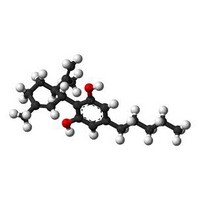Saorise O’Sullivan, PhD, summarized the extremely promising results of her research at this year’s meeting of the International Cannabinoid Research Society in Montreal. O’Sullivan is Associate Proferssor on the Faculty of Medicine and Health Sciences at the University of Nottingham. Her talk on “Cardiovascular Effects of Cannabinoids” won the ICRS’s Young Investigator Award. Here’s the abstract:
Cannabidiol (CBD) is a non-psychoactive phytocannabinoid already on the market as part of a licensed treatment in multiple sclerosis (Sativex® GW Pharmaceuticals, Cambridge, UK). CBD alone (Epidiolex®, GW Pharmaceuticals, Cambridge, UK) is also in clinical trials in children with intractable epilepsies and has orphan designation status in the US in neonatal hypoxiaischaemic encephalopathy. CBD is the focus of much research because of its potential in a number of other therapeutic areas due to its anti-inflammatory, anti-convulsant, anti-oxidant, anxiolytic, anti-nausea, anti-tumoural and anti-psychotic properties. A number of preclinical studies have also shown beneficial effects of CBD in a range of disorders of the cardiovascular system (Stanley et al., 2013a), which has been the focus of my research for the last 10 years.
We have shown that CBD causes both acute and time dependent vasorelaxation of rat and human arteries as measured ex vivo, and can improve endothelial function and vasodilator responses in a rat model of type 2 diabetes both ex vivo and in vivo. In healthy volunteers, we have shown that a single dose of CBD decreases resting blood pressure and the blood pressure response to stress. One cardiovascular disorder we are particularly interested in is stroke and showed through a meta-analysis that CBD significantly improves infarct size in animal models of stroke. In a cell culture model of the blood brain barrier (BBB), CBD protects against increased permeability induced by ischaemia-reperfusion damage, which is at least one of the facet by which CBD may be protective in stroke. Collectively, these data suggest that CBD is a compound of interest in the cardiovascular system and in cardiovascular disorders, which needs to be tested in relevant patient groups.





